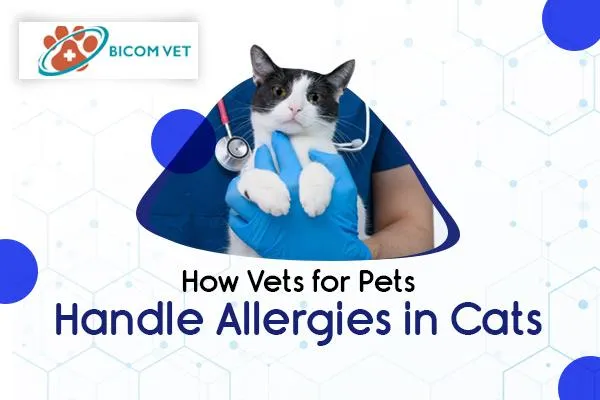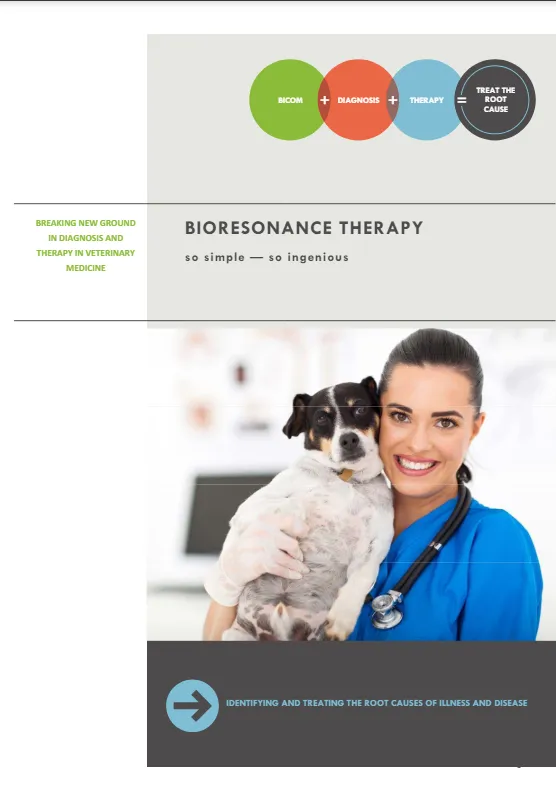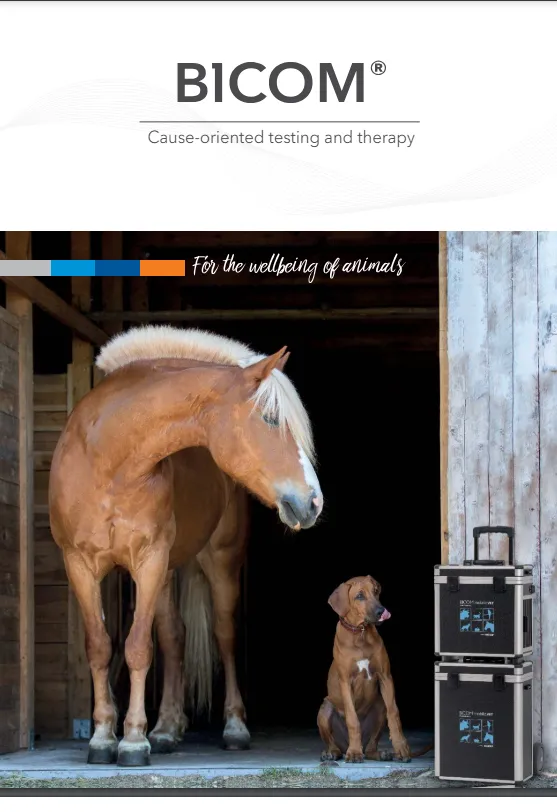BICOM® Bioresonance
Stress-free for pets and pet owners Suitable for all types of animals
There are many dogs , cats and horses suffering from health problems worldwide.
Be it problems with the musculoskeletal system, allergies and food intolerances or chronic diseases.
Sometimes, as an animal owner, you are at a loss when you can’t get any further with conventional therapy methods.
Like acupuncture or homeopathy, bioresonance belongs to the field of complementary medicine and is intended to be a useful supplement to conventional medicine.
It works with the body’s own wavelength of the four-legged friend, is used without medication and is painless to use.
Of course, not all health problems can be resolved with bioresonance. It is best to talk to a veterinarian or animal naturopath.
With our therapist finder you can find the nearest practice that can offer you BICOM® bioresonance.
Pain-free testing and therapy
Treatment with the BICOM® device is painless and stress-free. Especially sensitive animals feel very comfortable and it often happens that they completely relax and come to rest during the therapy.
Bioresonance has no harmful side effects and is used without medication.
Occasionally, initial aggravations, in what is known as the body’s initial reaction, can occur. However, these fade away after a short time.
What Pet Owners are saying..

Professional Vets for Pets: Expert Care for Cat Allergies
How Vets for Pets Handle Allergies in Cats
Cats, like humans, can suffer from allergies. These allergies can range from mild to severe, causing discomfort and affecting their quality of life. When your furry friend starts showing symptoms of allergies, it’s crucial to seek professional help. Vets for pets are experts in diagnosing and treating allergies in cats. In this blog, we will explore how vets for pets handle allergies in cats, ensuring they receive the best care possible.
Understanding Cat Allergies
Before diving into how vets for pets handle allergies, it’s essential to understand what cat allergies are. Allergies occur when a cat's immune system reacts to a substance, known as an allergen, that is typically harmless to other animals. Common allergens for cats include pollen, dust mites, certain foods, and flea bites. When exposed to these allergens, cats may experience a range of symptoms, from sneezing and itching to more severe reactions like difficulty breathing.
Identifying Symptoms of Allergies in Cats
One of the first steps vets for pets take in handling allergies in cats is identifying the symptoms. Common symptoms of cat allergies include:
Sneezing and coughing: These symptoms often occur when a cat is exposed to airborne allergens like pollen or dust.
Itchy skin: Cats may scratch or lick themselves excessively, leading to hair loss or skin infections.
Watery eyes and runny nose: These symptoms are similar to hay fever in humans and are often caused by environmental allergens.
Ear infections: Allergies can cause inflammation in the ears, leading to frequent ear infections.
Digestive issues: Vomiting or diarrhea can indicate a food allergy in cats.
When a cat vet notices these symptoms, they will start the process of diagnosing the specific allergy.
Diagnosis of Allergies by Vets for Pets
Diagnosing allergies in cats can be challenging because symptoms often overlap with other conditions. Therefore, vets for pets use a comprehensive approach to determine the exact cause of a cat's allergies. The first step usually involves a thorough physical examination. The cat vet will check the cat's skin, ears, eyes, and overall condition to look for signs of allergies or infections.
Next, the vet may recommend allergy testing. There are several methods for testing allergies in cats:
Skin tests: This involves exposing the cat's skin to small amounts of potential allergens to see if there is a reaction.
Blood tests: These tests measure the levels of antibodies in the cat's blood to specific allergens.
Elimination diets: For suspected food allergies, a cat vet might recommend an elimination diet. This involves feeding the cat a special diet free from common allergens to see if symptoms improve.
Once the specific allergen is identified, vets for pets can create a tailored treatment plan for the cat.
Treatment Options for Cat Allergies
After diagnosing the allergy, the next step for vets for pets is to treat the condition. The treatment plan will depend on the type and severity of the allergy. Here are some common treatment options:
Avoidance of Allergens: The most effective way to manage allergies is to avoid the allergen altogether. If a cat is allergic to a specific food, the vet will recommend a diet change. For environmental allergies, vets for pets might suggest keeping the cat indoors during high pollen seasons or using air purifiers.
Medications: Cat vets often prescribe medications to help manage allergy symptoms. These can include:
Antihistamines: These are used to reduce sneezing, itching, and other mild symptoms.
Corticosteroids: These are stronger medications that help reduce inflammation and severe allergic reactions.
Immunotherapy: This involves giving the cat small, regular doses of the allergen to build up their immunity over time.
Topical Treatments: For skin allergies, vets for pets might recommend topical treatments like medicated shampoos or ointments. These products can soothe irritated skin and reduce itching.
Flea Control: If a cat is allergic to flea bites, strict flea control is necessary. Vets for pets will recommend flea prevention treatments, which may include oral medications, topical treatments, or flea collars.
Probiotics and Supplements: Sometimes, a cat vet might suggest adding probiotics or omega-3 fatty acid supplements to the cat's diet. These can help strengthen the cat's immune system and improve skin health.
Long-Term Management of Cat Allergies
Allergy management is often a long-term commitment. Vets for pets emphasize the importance of ongoing care and monitoring. Regular check-ups with a cat vet are essential to ensure the treatment plan is working effectively and to make adjustments as needed.
Here are some tips for managing cat allergies long-term:
Regular cleaning: Keep your home clean to reduce exposure to dust mites and other allergens. Vacuum frequently and wash your cat’s bedding regularly.
Maintain a healthy diet: Ensure your cat is on a diet recommended by your cat vet, especially if food allergies are a concern.
Monitor for new symptoms: Always be vigilant for any new symptoms or changes in your cat’s behavior, as allergies can evolve over time.
Follow your vet’s advice: It’s crucial to adhere strictly to the treatment plan provided by vets for pets. This includes giving medications as prescribed and following recommended lifestyle changes.
How Vets for Pets Provide Support
Vets for pets play a crucial role in not just diagnosing and treating cat allergies but also in providing ongoing support and education to pet owners. They help pet owners understand the nature of their cat’s allergies and offer practical advice on managing them.
Furthermore, a good cat vet will keep up with the latest developments in veterinary medicine to provide the best possible care. This includes being aware of new treatments, medications, and management strategies that can help cats live comfortably despite their allergies.
Conclusion
Handling allergies in cats is a delicate process that requires professional expertise. Vets for pets are equipped with the knowledge and tools necessary to diagnose, treat, and manage allergies in cats effectively. From identifying symptoms and diagnosing the cause to providing tailored treatment plans and ongoing support, these professionals ensure that your furry friend remains healthy and happy.
If you suspect your cat may have allergies, it’s essential to consult a cat vet as soon as possible. Early diagnosis and treatment can make a significant difference in your cat’s quality of life. Remember, vets for pets are there to help, offering the best care and support to manage your cat's allergies effectively. By following their advice and maintaining a close partnership with your cat vet, you can help your feline friend live a more comfortable, allergy-free life.
In conclusion, when it comes to handling allergies in cats, trust in the expertise of vets for pets. Their comprehensive approach, combined with a genuine love for animals, ensures that your cat receives the best possible care. So, don't hesitate to reach out to a cat vet if you notice any signs of allergies in your feline companion. Together, you can navigate the challenges of cat allergies and ensure a healthier, happier life for your pet.
To find a vet near you please complete the form below
Quick Links








Facebook
Instagram
Mail